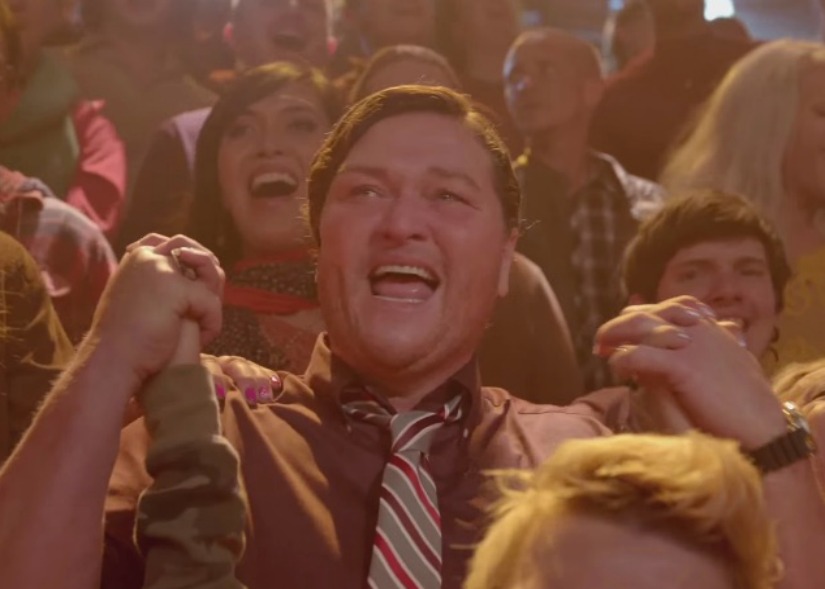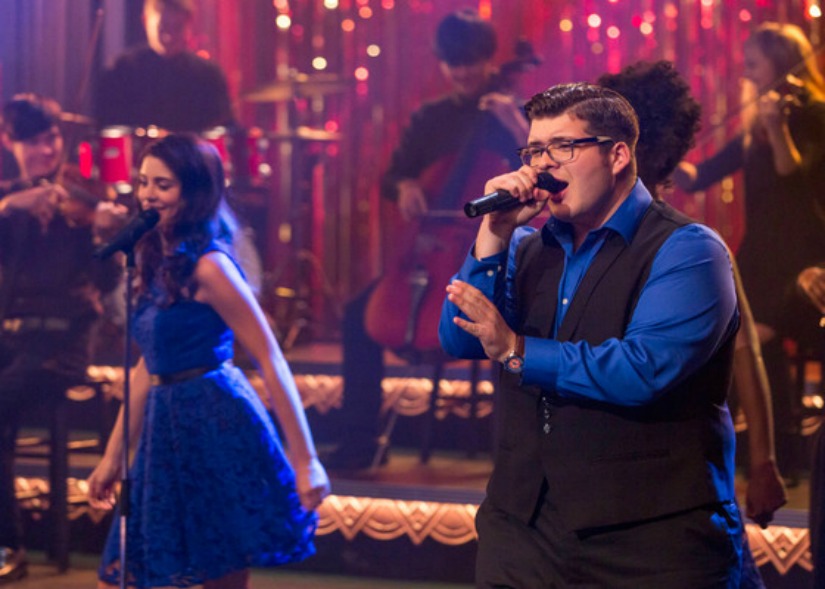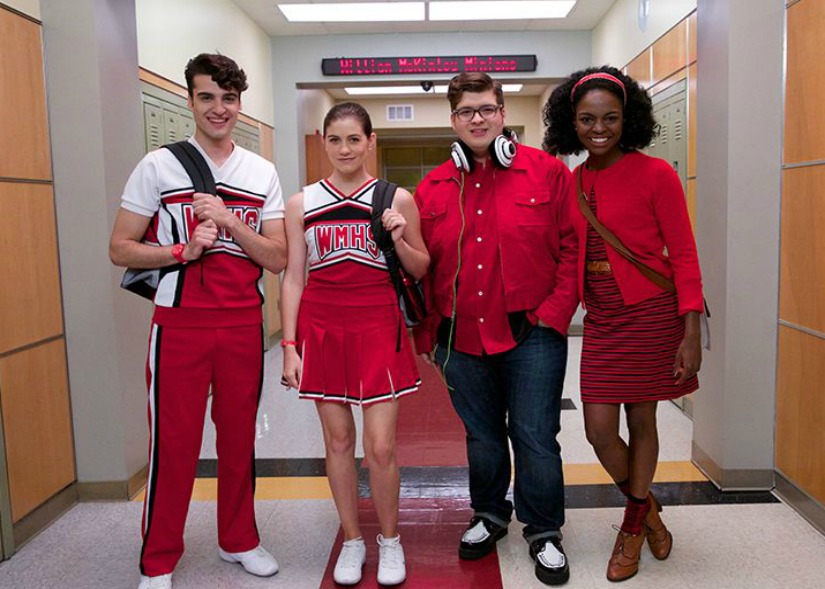I’ve been watching Glee on Fox for a very long time. A “Gleek” who has been attached from its inception as a thirteen episode miniseries, to full series order, to second season debacle, trying out for its spin-off The Glee Project on Oxygen, its tumultuous third season, its fourth season semi-reboot shift to New York, its fifth season mid season shift away from McKinley to New York due to a big loss, the death of Cory Monteith and subsequent tribute episode “The Quarterback,” and finally, its thirteen episode final season. The show has been through major ups and downs through the years and this last season has certainly been the worst the series has had to offer. Yes, even worse than season four’s “Shooting Star.”
But why is that? Because Glee doesn’t care whether or not we like it anymore. With nothing to lose, the show is taking the biggest risks in its history and that should make for an entertaining watch, yet we’ve gotten nothing of the sort. Rather than going out with an explosive bow, it’s like we’re watching these characters circling the drain slowly singing their woes away.
Let’s start from the beginning. When the final season began, I was extremely hopeful for what was to come. For those who haven’t been sticking around, Glee was no longer the show about losers it originally started as. The New Directions went on to win sectionals, regionals, nationals, and Rachel went on to NYADA (a performing arts university) in New York, landed a role in a Broadway revival of the movie Funny Girl, and then quit that in order to pursue a TV career. Basically, success had become moot as it just seemed to endlessly come. As Rachel reached higher and higher, her stories became less palatable and less engaging. But the final season’s premiere fixed that. It reset all of the easy (and noticeably faux) success given to the New Directions as Rachel is forced to go back home to Lima after her TV career fails to take off. And in awesomely Glee fashion, it was during a surprisingly emotional musical number. Rachel and Kurt decide to restart McKinley’s Glee club, recruit a new team of kids, and for the first two episodes everything was pretty great.
There were tons of allusions to the first season too. The “New” New Directions started with five kids, like with the original season, they were full of seemingly nuanced characters (and not just the plain archetypes featured in the past), and there was a seemingly tight storyline that set the final season in motion. But that all fell by the wayside pretty quickly. The show quickly forgot about the new perspectives and once again shoehorned in old ideas. With episode three, “Jagged Little Tapestry,” we got all of Glee’s faux pas in one sitting. Bringing in graduated characters and making them seem like they never grew up, focusing an entire episode on a esoteric set of songs, and one of the saddest character arcs in its history.

My favorite characters through Glee‘s six season run are Dave Karofsky and Coach Shannon Beiste. It should be telling that Glee can’t really write its characters well when two secondary characters actually had the most evolution through the show, but their journeys have been incredibly emotional. But this final season has made a tragic decision. By celebrating itself and promoting equal treatment, it strains and stretches all of its characters into caricatures. Don’t get me wrong, equal treatment advocacy on television is fantastic, but it can’t work like this. Glee hasn’t dealt with these topics with a deft hand in the past and the negativity has built to such a point, it’s all blowing up in its face. During episode three, Beiste confessed she had Gender Dysphoria. She stated that she was never comfortable in her body, and always felt she was more masculine. Then after two of the worst episodes in series history (they’re completely unrelated to this and deal with Sue wanting Kurt and Blaine to get married just because it’s what the show wants even if it makes zero sense), Shannon becomes Sheldon. Although episode seven, “Transitioning,” featured one of the best covers in the series (and a choir of 300 trans individuals) this decision made zero sense overall.
First of all, Shannon has dealt with dysphoria throughout the series but it was never a result of her feeling more masculine than feminine. Her entire arc centered around not being treated like the woman she felt she was. The writers just never knew what to do with her. She once had a crush on Will Schuester, competed with Sue for a boyfriend, was in and out of an abusive marriage, and just sort of floated around in the wayside while Glee focused on the same six characters it always had. Glee hasn’t had the best track record with trans equality either (it spent its fourth and fifth seasons demeaning Unique by referring to her as “He/Him/It ” several times without fulling acknowledging her wishes to be a woman), so this just screams of a false attempt at balancing out the past. It’s a ploy rather than the grand gesture it’s meant to be and it feels incredibly manipulative…much like its double gay wedding episode.
Yet, Glee no longer cares. This final season is a result of throwing caution into the wind and fulfilling all sorts of desires without giving us a real reason to want to watch. Instead of feeling like a celebration and victory lap, it’s a culmination of everything that’s been bad about the show over the years. Sure the show hasn’t had the best ratings in later seasons, but that’s no reason to give up and be as completely esoteric as it is. I never thought I’d watch a double gay wedding episode featuring a song by Gloria Estefan and simply roll my eyes. How can something so effervescent feel so bland and colorless?
I’ve known Glee was a problematic show from the start, but I stuck around because it managed to hit some genius places every now and again. It’s a unique show in television history, and I’m glad I waded through the muck to get here. But was it so wrong for me to want more before it takes the stage one last time? Instead we’re getting these thrown together episodes with very little thought put into them as these characters forgo thought processes in order to sloppily serve the story.
It’s a shame this won’t be as good as the tightly wound first season but, with only a couple of episodes left, there’s still time to bring about a satisfying endgame. Aww, who am I kidding? I’ll be fine with just a re-up of Journey’s “Don’t Stop Believin’.”
Because after all, I’m also just a small town girl livin’ in a lonely world.


